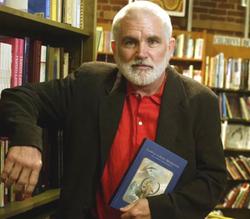 |
|
| Mike Davis | |
Mike Davis, whose 1990 book City of Quartz: Excavating the Future in Los Angeles "was almost irrationally ambitious" and "quickly materialized on bestseller lists when it debuted," died October 25, the Los Angeles Times reported. He was 76. The book also turned its author into a public intellectual, even though his "visions of the city's 'spatial apartheid,' as described in City of Quartz, had initially been chided as apocalyptic by some critics. But the 1992 uprisings, which left swaths of L.A. in cinders, showed that his analysis had been prescient."
Prior to the book's publication, Davis had been "a Marxist urban scholar whose primary contribution to the public discourse at the time consisted of a little-read book about the history of labor in the U.S., along with dispatches on related subjects in the LA Weekly and the New Left Review," the Times wrote.
"When you judge the work of somebody, it's what the work itself did, the ways it makes us think differently," said historian William Deverell. "Equally important: How many ships did it launch? And City of Quartz launched so many ships--whether it's dissertations or conferences or articles."
Though best known for City of Quartz, Davis wrote more than a dozen books, including Set the Night on Fire: L.A. in the Sixties (2020), which he co-authored with historian and journalist Jon Wiener; Ecology of Fear: Los Angeles and the Imagination of Disaster (1998) and The Case for Letting Malibu Burn.
In the Nation, Wiener wrote that Davis "hated being called 'a prophet of doom.' Yes, L.A. did explode two years after City of Quartz; the fires and floods did get more intense after Ecology of Fear, and of course a global pandemic did follow The Monster at Our Door. But when he wrote about climate change or viral pandemics, he was not offering a 'prophecy'; he was reporting on the latest research. After Covid hit, we did several Nation podcast segments about it; he told me at one point 'I’ve been staying up late reading virology textbooks.' "
Wiener added: "Davis was committed to showing his readers a kind of bleakness that was neither voyeuristic nor moralizing but overpowering in its scope and scale. As a truck driver turned geographer, he knew that there was a lot of road to cover for people to see just how human activity has depleted our landscapes. He tried to show his readers that grim reality in every sentence."

